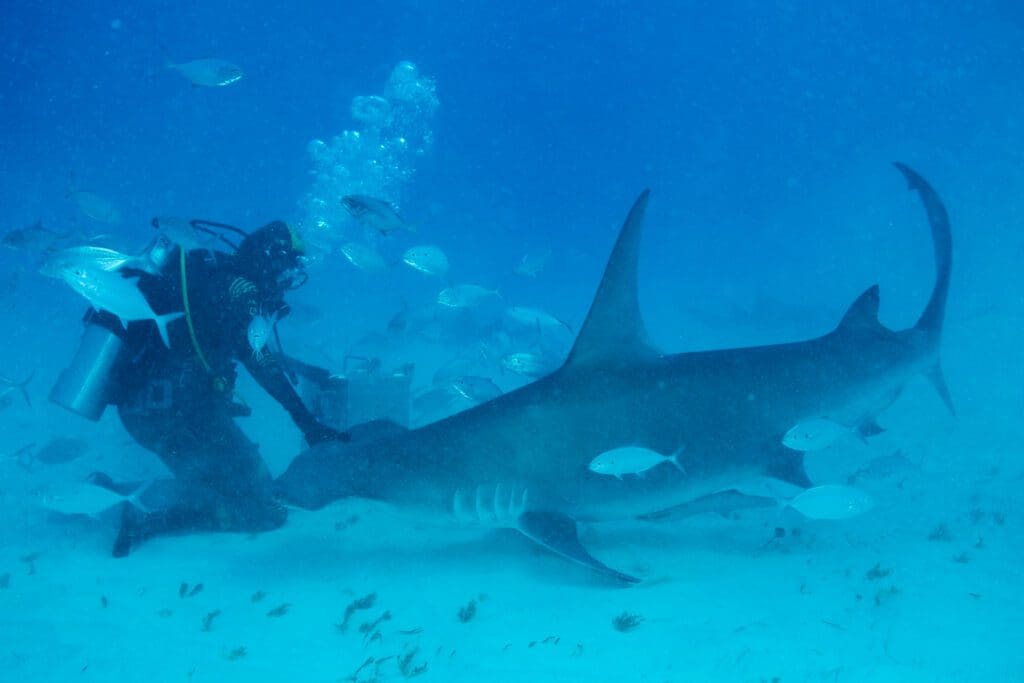Shark feeding dives are a popular attraction for scuba divers and club co-founders Christopher and André just returned from such an excursion. However, this practice has sparked a heated debate among marine conservationists, divers, and policymakers. Let’s dive into the pros and cons of feeding sharks for entertainment, examining the safety record, legality in the US, and other pertinent issues.
Pros of Shark-Feeding Dives
There are three main pros about shark feeding dives. They are:
- Significant Economic Impacts – shark feeding dives in impoverished communities like Bimini attract thousands of tourists annually and generate significant on-island spending that otherwise might not happen.
- Educational Value – shark feeding dives offer a unique opportunity for direct wildlife encounters and transform common perceptions of sharks as fearsome predators to realistic views of the part they play in the marine ecosystem.
- Conservation Funding – revenue generated from shark-centric tourism can be funneled back into conservation efforts, including funding for marine-protected areas, shark research and public awareness campaigns.
Cons of Shark-Feeding Dives
There are three significant cons to shark feeding dives. They are:
- Behavioral Changes in Sharks – Regular feeding by humans can alter sharks’ natural behaviors, making them overly reliant on human-provided food sources. This can affect their role as apex predators and disrupt the natural balance of the ecosystem.
- Safety Risks – Feeding sharks can increase the risks of accidents and injuries. While the safety record in locations like the Bahamas shows that shark feeding dives can be conducted safely, there have been incidents where handlers and guests were seriously bitten.
- Ecological Concerns – Long-term provisioning can negatively impact sharks’ resting, feeding, and reproductive behaviors, as well as their metabolic rates and overall health. Studies from Australia have shown that shark feeding can reduce reproductive success and natural food acquisition
Legality in the United States
The legality of shark feeding varies across the United States. In Florida, shark feeding is banned due to concerns about public safety and the potential for habituating sharks to associate humans with food. The Magnuson-Stevens Fishery Conservation and Management Act and the Shark Conservation Act of 2010 regulate shark management and conservation in US federal waters. Additionally, the Shark Fin Sales Elimination Act of 2023 prohibits the possession, acquisition, receipt, transport, offering for sale, selling, or purchasing any detached fin or tail of a shark.
Conclusion
Feeding sharks for scuba entertainment presents a complex array of benefits and drawbacks. While it can boost local economies, provide educational value, and support conservation efforts, it also raises significant ecological, ethical, and safety concerns. As the debate continues, it is crucial to balance the interests of tourism, conservation, and public safety to ensure the sustainable and responsible management of shark populations. Check out the related articles Why I Participate in Shark Feeding and Shark Diving: To Feed or Not To Feed.


